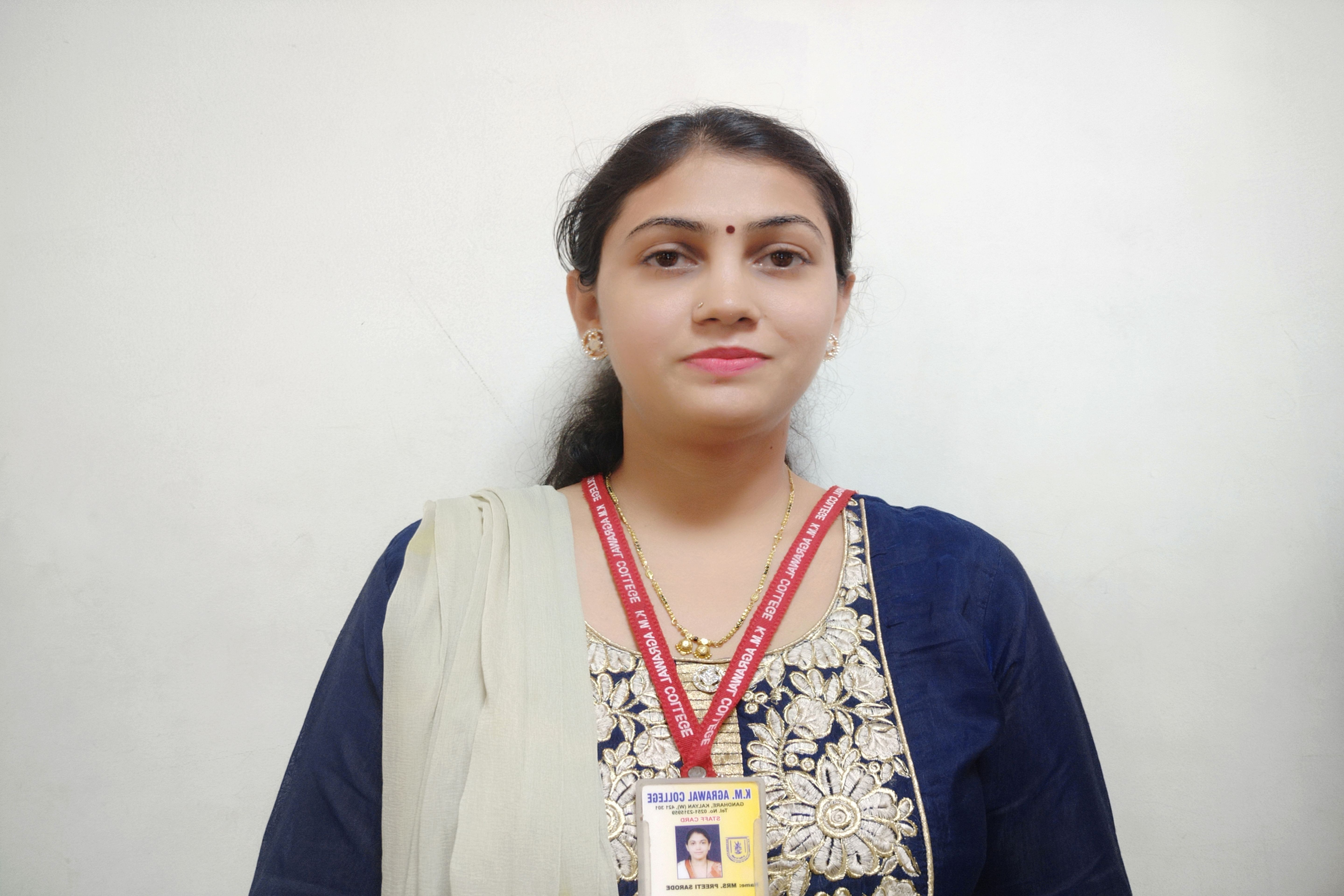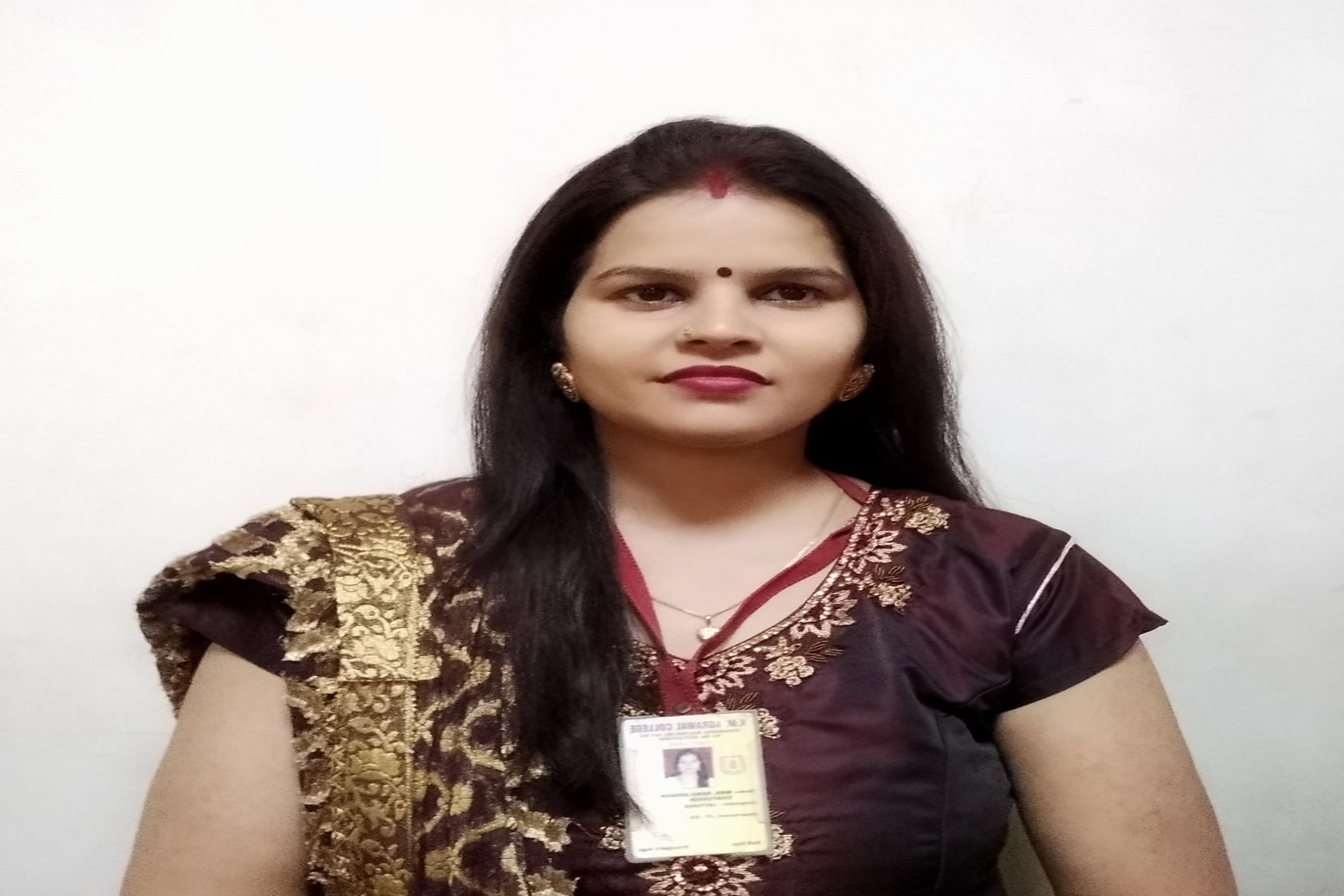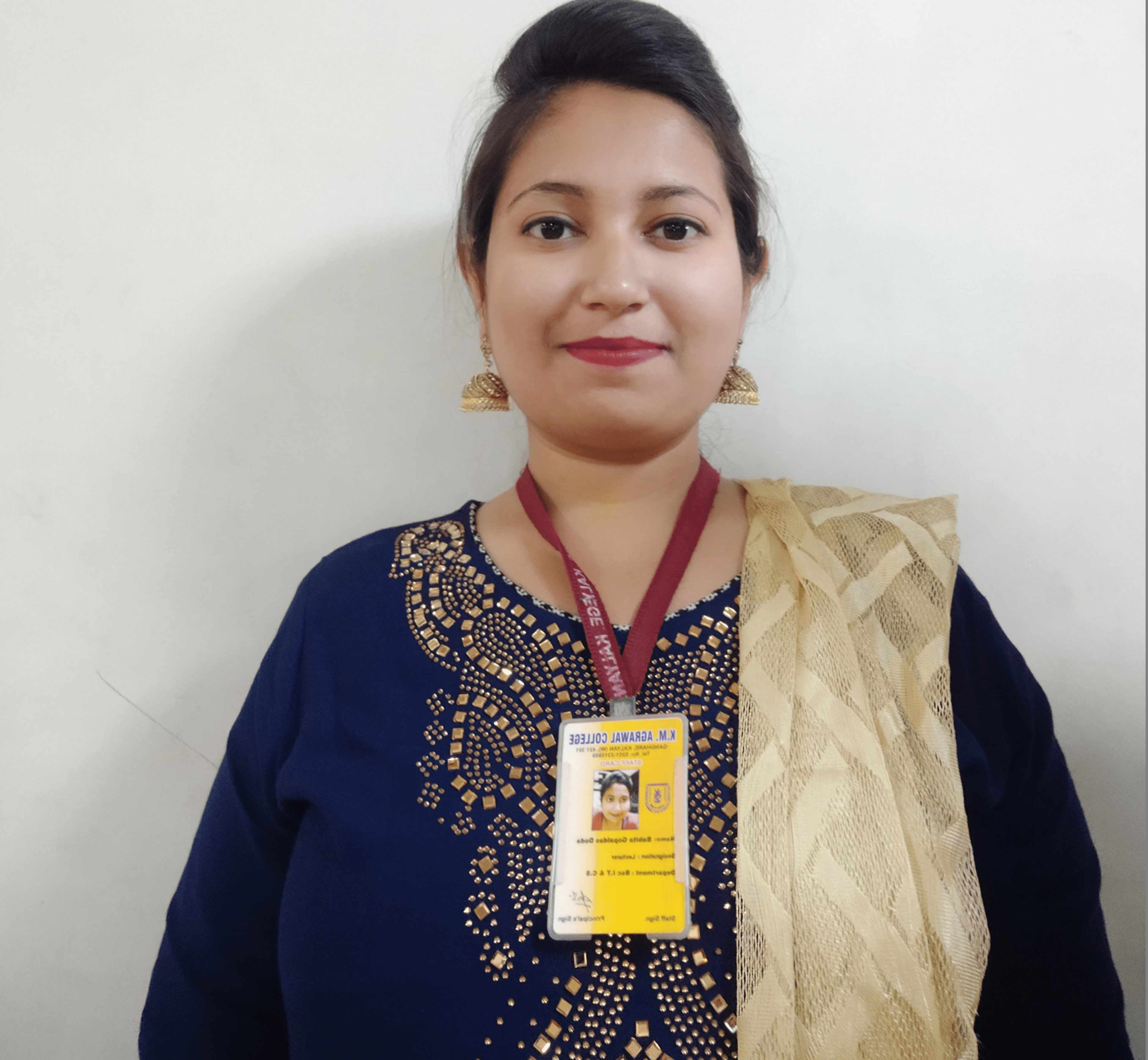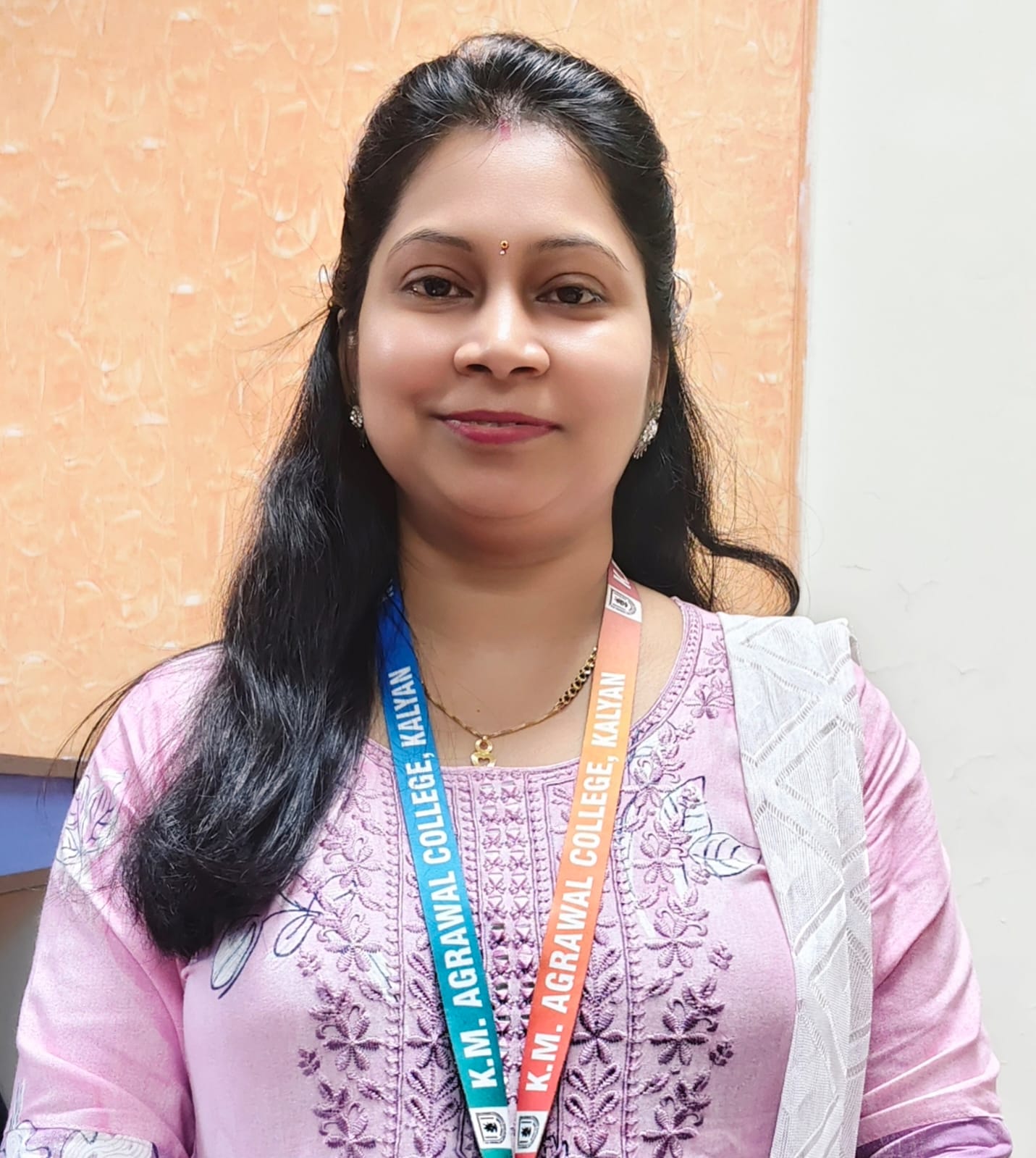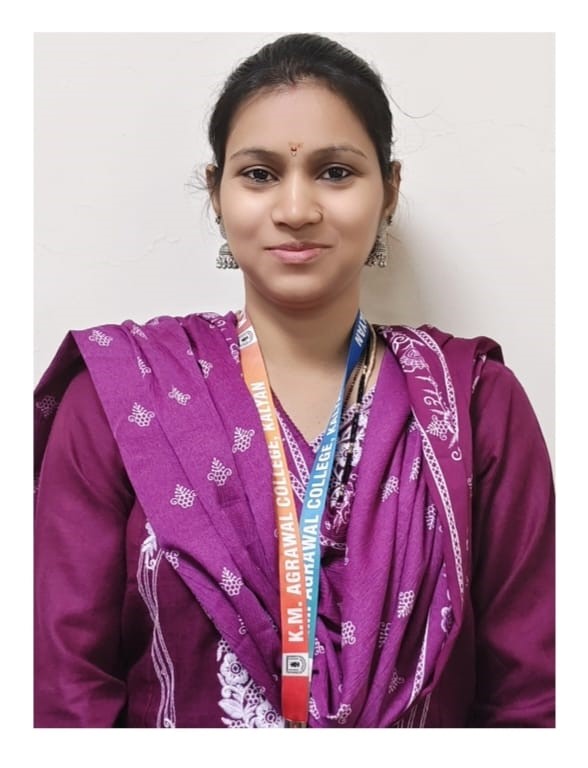B.Sc. INFORMATION TECHNOLOGY 
 A candidate for being eligible for admission to the degree course of Bachelor of Science Information Technology, shall have passes XII standard examination of Maharashtra Board of Higher Secondary Education or its equivalent with Mathematics as one of the subject and should have secured not less than 45% marks in aggregate for Open Category and 40% marks in aggregate in case of Reserved category candidates.
A candidate for being eligible for admission to the degree course of Bachelor of Science Information Technology, shall have passes XII standard examination of Maharashtra Board of Higher Secondary Education or its equivalent with Mathematics as one of the subject and should have secured not less than 45% marks in aggregate for Open Category and 40% marks in aggregate in case of Reserved category candidates.
 Candidate who have passed Diploma in Computer Engineering / Computer Science / Computer Technology / Information Technology / Electrical, Electronics & Video
Engineering and Applied Branches / Mathematical and Applied Branches Civil and Applied Branches of Engineering after S.S.C. (Xth Standard) are eligible for direct admission to the second yearof B.Sc. I.T. Degree course.
However, Diploma should be recognized by the Board of Technical Education or any other Recognized Government Body. Minimum marks required 45% aggregate for Open Category and 40% marks in aggregate in case of Reserved category candidates.
Candidate who have passed Diploma in Computer Engineering / Computer Science / Computer Technology / Information Technology / Electrical, Electronics & Video
Engineering and Applied Branches / Mathematical and Applied Branches Civil and Applied Branches of Engineering after S.S.C. (Xth Standard) are eligible for direct admission to the second yearof B.Sc. I.T. Degree course.
However, Diploma should be recognized by the Board of Technical Education or any other Recognized Government Body. Minimum marks required 45% aggregate for Open Category and 40% marks in aggregate in case of Reserved category candidates.
 Candidates with post HSC Diploma in Computer Engineering / Computer Science Computer Technology / Information Technology and applied branches will be direct
admission to the Second year of B.Sc. (I.T.). However, the Diploma should be recognized Government Body Minimum Marks required 45% aggregate for Open Category candidates and 40% for Reserved Category candidates.
Candidates with post HSC Diploma in Computer Engineering / Computer Science Computer Technology / Information Technology and applied branches will be direct
admission to the Second year of B.Sc. (I.T.). However, the Diploma should be recognized Government Body Minimum Marks required 45% aggregate for Open Category candidates and 40% for Reserved Category candidates.
 The course is full time with six semester spread overthree year. It consists of 30 papers with sixth semester specially designed for project work.
The course is full time with six semester spread overthree year. It consists of 30 papers with sixth semester specially designed for project work.
Bachelor of Science (IT) is a well designed three year degree program for the students with interest in the field of Information Technology. In this tech savvy age, every day new technology replaces the older one and hence there is constant need of people in this ever increasing field of technology.
 B.Sc. IT program will train you in different areas of Information Technology.
B.Sc. IT program will train you in different areas of Information Technology.
• IT sector revolves around main aspects such as – networks, OS, relevant software, database management, data sets, hardware, programming, information security etc.
• IT is a broad field which consists of different types of sub-branches such as – information security, DBMS, IT project management, IT system maintenance, hardware and networking etc.
• B.Sc. IT program does deal with these sub-branches. But if you want to specialize in one such sub-branch, you may rely on relevant M.Sc., PG Diploma or PG Certificate program.
• IT sector has applications in different domains. Some such domains include – banking, E-Commerce, entertainment, governance, healthcare, business etc.
• The job opportunities are available after completion of B.Sc IT are more in both the sectors, in government and MNCs.
• Students can also opt for higher studies such as an M.Tech. or MBA course.
• To cater to the needs of effectively managing the business by bridging the gap between managerial practices and Information Technology, B.Sc. IT program can be opted.
B.Sc.(IT)
 The curriculum motivates and encourages students to understand the concept of following areas:
The curriculum motivates and encourages students to understand the concept of following areas:
• Design, implements, test, and evaluate a computer system, component, or algorithm to meet desired needs and to solve a computational problem.
• To enhance skills and adapt new computing technologies for attaining professional excellence and carrying research.
• Knowledge of basic Software engineering methods and practices, and their appropriate application.
• Knowledge and application of collaborative tools for Software development.
• Successful implementation of teamwork behavior and policies in a large class project.
• Students will demonstrate a breadth of knowledge in computer science, as exemplified in the areas of systems, theory and software development.
• Students will demonstrate ability to conduct a research or applied Computer Science project, requiring writing and presentation skills which exemplify scholarly style in computer science.
 DEPARTMENT OF INFORMATION TECHNOLOGY
DEPARTMENT OF INFORMATION TECHNOLOGY
| Class | Course | Outcomes (Students will be able to ) |
|---|---|---|
| F.Y.IT Sem-I |
Imperative Programming | 1. Understand the fundamentals of Imperative programming. 2. Students will learn the concepts of loops and decision making statements to solve the problem. 3. Students will learn to Implement different Operations on arrays. 4. Students will learn to Use functions to solve the given problem. 5. Understand pointers, structures and unions. 6. Understand various file Operations. |
| F.Y.IT Sem-I |
Digital Electronics | 1. Students will Understand different Number systems, Codes, Logic Gates, Boolean laws &theorems. 2. Understand the Boolean functions. 3. Students will learn to Design & implement different types of combinational logic circuits using Logic gates. 4. Students will learn toDesign & implement different types of sequential logic circuits using Flip Flops. 5. Students will learn toDesign & implement different types of Counters, multiplexer, demultiplexer. |
| F.Y.IT Sem-I |
Operating Systems | 1. Understand the functionalities of an Operating System and the concept of process. 2. Students will learn to Apply CPU Scheduling algorithms. 3. Understand different problems related to process synchronization. 4. Students will learn to Apply deadlock prevention and deadlock detection algorithms. 5. Understand the concepts of paging and segmentation for memory management. 6. Understand different page replacement algorithms 7. Understand different disk space allocation methods and free space management techniques. |
| F.Y.IT Sem-I |
Discrete Mathematics | 1. Students will learn toApply sets, relations and digraphs to solve applied problems. 2. Students will learn to Analyze the statements presented in DNF and determine their validity. 3. Students will learn to Examine the validity of argument by using propositional and predicate calculus. 4. Students will learn to Apply basic counting techniques to solve the combinatorial problems. 5. Understand the basic concepts of graph theory and some related theoretical problems. |
| F.Y.IT Sem-I |
Communication Skills | 1. The Students will learn toe Seven Cs of Effective Communication. 2. Understand Types of Communication. 3. Students will learn to Write Business Messages and Documents. 4. Understand Oral Communication Skills for Business. 5. Understand Presentation Process. |
| F.Y.IT Sem-II |
Microprocessor Architecture | 1. Understand the concept of Microprocessor, microcomputers, and Assembly Language. 2. Understand 8085 Microprocessor Architecture and Memory Interface. 3. Learn Interfacing of I/O Devices. 4. Learn Programming Techniques With Additional Instruction. 5. Understand Code Conversion, BCD Arithmetic, and 16-Bit Data Operations. 6. Understand Pentium and Pentium Pro microprocessors. |
| F.Y.IT Sem-II |
Web Programming | 1. Students will learn Internet and the World Wide Web. 2. students will understand concept of HTML5 Tables, Forms and Media. 3. Students will learn Client-Side JavaScript, Server-Side JavaScript, JavaScript Objects, JavaScript Security. 4. Students will learn Advanced PHP and MySQL. |
| F.Y.IT Sem-II |
Numerical and Statistical Methods | 1. Students will Understand Mathematical Modeling and Engineering Problem Solving. 2.Students will Understand Solution of simultaneous algebraic equations (linear) using iterative methods 3. Students will Learn Solutions of Algebraic and Transcendental Equations 4. Students will Understand Least-Squares Regression and Random variables. |
| F.Y.IT Sem-II |
Green Computing | 1. The students will understand what Green IT is and How it can help improve environmental Sustainability. 2. Students will understand the principles and practices of Green IT. 3. students will understand how Green IT is adopted or deployed in enterprises. 4. understand how data centres, cloud computing, storage systems, software and networks can be made greener. 5.Learn the importance of Paperless Billing. |
| S.Y.IT Sem-III |
Python Programming | 1. Students will learn Basics of Python programming. 2. Understand Decision Making and Functions in Python. 3. Understand Object Oriented Programming using Python. 4. Understand File Handling in Python. 5. Learn GUI Programming and Databases operations in Python. |
| S.Y.IT Sem-III |
Data Structures | 1. students will learn the fundamental concepts of Data structures, space complexity and time complexity. 2. Learn to Design linear data structures stacks, queues and linked lists. 3. Design non linear data structures trees and Graphs, and implement their operations. 4. Apply appropriate data structure for a given application. 5. Implement different searching and sorting techniques. |
| S.Y.IT Sem-III |
Computer Networks | 1. Understand various standard network models. 2. Understand various guided transmission media. 3. Learn the concept of error detection and error correction codes. 4. Understand the concepts behind medium access control sub layer. 5. Implement and analyse routing and congestion issues in network design. 6. Analyse the underlying protocols in transport layer. 7. Identify different applications in Application layer. |
| S.Y.IT Sem-III |
Database Management Systems | 1. Understand DBMS concepts, data models and Architecture. 2. Use SQL for database management. 3. Understand ER concepts and ER mapping to relational model 4. Apply the concepts of relational algebra and calculus. 5. Apply normalization process to construct the data base. 6. Understand Concurrency and recovery strategies of DBMS. |
| S.Y.IT Sem-III |
Applied Mathematics | 1. Students will Learn the concept of Matrices ,Complex Numbers. 2. Students will Learn the concept of Differential equation of the first order of a degree higher than the first. 3. learn to apply Linear Differential Equations with Constant Coefficients. 4. students will understand Laplace Transform and Inverse Laplace Transform. 5. Understand Beta and Gamma Functions. |
| S.Y.IT Sem-IV |
Core Java | 1. Students will learn the fundamental concepts and features of Java Programming language. 2. Implement the basic principles of Object Oriented Programming which includes inheritance, polymorphism, encapsulation and abstraction and also Arrays, data and Text File Operations. 3. Students will learn to Develop Graphical User Interface applications and Web based applications in Java by importing applet, AWT and SWING packages. 4. Students will Implement the role of XML for the management and delivery of electronic information for given application. 5. Develop Web based applications by Servlets and JSP to have an interactive application such as Client Server Architecture. |
| S.Y.IT Sem-IV |
Introduction to Embedded Systems | 1. Students will learn the concepts and architecture of embedded systems. 2. Understand the basics of microcontroller 8051. 3. Learn the concepts of microcontroller interface. 4. Learn the concepts of ARM architecture. 5. Learn the concepts of realtime operating system. 6. Understand Different design platforms used for an embedded systems application. |
| S.Y.IT Sem-IV |
Computer Oriented Statistical Techniques | 1. Understand the Mean, Median, Mode, and Other Measures of Central Tendency. 2. Understand Moments, Skewness, and Kurtosis. 3. Understand Statistical Estimation Theory and Statistical Decision Theory. 4. Understand the Chi-Square Test. 5. Understand Curve Fitting and the Method of Least, Squares, Correlation Theory. |
| S.Y.IT Sem-IV |
Software Engineering | 1. Understand basic concepts of software engineering. 2. Understand the concept of SDLC. 3.Compare different software engineering process models. 4. Learn various UML diagrams, CMM model. 5. Learn to Apply different testing techniques. |
| S.Y.IT Sem-IV |
Computer Graphics and Animation | 1. Students will learn various Computer Graphics display technologies. 2. Students will learn the basic output primitive drawing algorithms along with 2D and 3D transformation concepts to display the objects. 3. Students will learn to apply the polygon filling algorithms to fill polygons with required colour. 4. Students will learn to Apply the Line clipping and Polygon Clipping techniques. 5. Learn types of projection, concept of bezier curve, Bspline curve, Types of images. 6. Understand the concept of Animation. |
| T.Y.IT Sem-V |
Software Project Management | 1. Learn the concept of Project Planning. 2. Students will learn Project Evaluation and Programme Management. 3. Students will learn Selection of an Appropriate Project Approach. 4. Students will understand concept of Risk Management ,Monitoring and Control. 5. Understand concept of Software Quality, Testing, Software Reliability, Quality Plans. |
| T.Y.IT Sem-V |
Internet of Things | 1. Students will understand the concepts of IP, TCP, The IP Protocol Suite (TCP/IP), UDP 2. Students will learn IP Addresses, DNS, Static IP Address Assignment, Dynamic IP Address Assignment, IPv6, MAC Addresses, TCP and UDP Ports. 3. Students will Learn the concept of Prototyping the Physical Design and Prototyping Embedded Devices. 4. Students will Learn various Business Models. 5. Students will Understand Characterizing the Internet of Things, Privacy, Control, Disrupting Control, Crowdsourcing, Environment, Physical Thing, Electronics, Internet Service. |
| T.Y.IT Sem-V |
Advanced Web Programming | 1. Students will understand the concepts of .NET, CLR, Objects, and Namespaces. 2. Students will learn the concepts of Web Form Fundamentals. 3. Students will learn the concepts ofUnderstand Error Handling, Logging, and Tracing 4. Students will learn the concepts ofUnderstand Styles, Themes, and Master Pages 5. Students will Learn ADO.NET Fundamentals. 6. Students will Understand the concepts ofXML, ASP.NET AJAX. |
| T.Y.IT Sem-V |
Linux System Administration | 1. Students will Understand the concepts of Red Hat Enterprise Linux. 2. Students will Understand the concepts of Configuring and Managing Storage,Connecting to the Network. 3. Students will Learn to Set Up Cryptographic Services. 4. Students will Learn Configuring DNS and DHCP. 5. Students will Learn Configuring Apache on Red Hat Enterprise Linux. 6. Students will Understand the concepts of Bash Shell Scripting. |
| T.Y.IT Sem-V |
Enterprise Java | 1. Students will Understand the concepts of Java EE Architecture, Server and Containers. 2. Students will learn to Work with Servlets, Servlet API and Lifecycle and Databases 4. Understand Request Dispatcher, COOKIES, SESSION, Working with Non-Blocking I/O 5. Understand the concepts of Java Server Pages, Implicit Objects, Scope and El Expressions 6. Understand the concepts of Session Beans, Message Driven Beans. 7. Learn the concepts of Persistence, Object/Relational Mapping And JPA. |
| T.Y.IT Sem-V |
Project | 1. Students will perform project planning activities that accurately forecast project costs, timelines, and quality. Implement processes for successful resource, communication, and risk and change management. 2. Gaining knowledge on Implementation of software design through UML diagrams using Star UML software. 3. Learning to Building Work break down structure using WBS Pro to distribute task . 4. Learning to Designing Gantt chart using Microsoft project tool to meet the schedule. |
| T.Y.IT Sem-VI |
Software Quality Assurance | 1. Students will learn Introduction, Constraints of Software Product Quality Assessment 2. Students will learn Fundamentals of testing, Unit Testing,Boundary Value Testing 3. Students will understand the concepts of Software Verification and Validation. 4. Students will understand Different Levels of Testing. |
| T.Y.IT Sem-VI |
Security in Computing | 1. Understand Security Overview, risk Analysis,Secure Design Principles,Authentication, Authorization Encryption 2. Understand Storage Security Database Security,Secure Network Design,Network Device Security: 3. Understand the concept of Firewalls 4. Students will Learn Wireless Network Security Intrusion Detection and Prevention Systems 5. Students will Learn various Operating System Security Models |
| T.Y.IT Sem-VI |
Business Intelligence | 1. Students will learn the concept of data Mining as an important tool for enterprise data management and as a cutting edge technology for building competitive advantage. 2. Students will learn to effectively identify sources of data and process it for data mining 3. Students will learn data mining algorithms, methods, and tools. 4. Students will learn how to gather and analyze large sets of data to gain useful business understanding. 5. Students will learn to impart skills that can enable students to approach business problems analytically by identifying opportunities to derive business value from data. 6. Students will learn to identify and compare the performance of business. |
| T.Y.IT Sem-VI |
Enterprise Networking | 1. Students will Understand various Network Design Models. 2. Students will learn Enterprise LAN Design, Data Center Design, Wireless LAN Design. 3. Students will Understand WAN Technologies and the Enterprise Edge. 4. Students will Understand the concept of IPv4, IPv6,DHCP,BGP, OSPF,IGMP. 5. Students will learnNetwork Management Protocols, Simple Network Management Protocol SNMP Components, MIB SNMP Message Versions SNMPv1 SNMPv2 SNMPv3, Other Network Management Technologies RMON, RMON2 NetFlow Compared to RMON and SNMP, CDP LLDP Syslog |
| T.Y.IT Sem-VI |
Cyber Laws | 1. Students will understand the concepts of Cyber Crime and Criminal Justice: Penalties, Adjudication and Appeals Under the IT Act, 2000. 2. Students will understand the concepts of Contracts in the Infotech World and Jurisdiction in the Cyber World. 3. Students will understand the concepts of Battling Cyber Squatters and Copyright Protection in the Cyber World. 4. Students will understand the concepts of E-Commerce Taxation: Real Problems in the Virtual World. 5. Students will understand the concepts of the Indian Evidence Act of 1872 v. Information Technology Act, 2000. 6. Students will understand the concepts of Protection of Cyber Consumers in India. |
| T.Y.IT Sem-VI |
Project | 1. Students will develop a real life or prototype of a working software model or embedded systems. 2. Students will Apply different testing techniques to test build model. 3. Students will deploy the project. |
 SEMESTER I
SEMESTER I
 SEMESTER II
SEMESTER II
 SEMESTER III
SEMESTER III
 SEMESTER IV
SEMESTER IV
As per University Guidelines.


